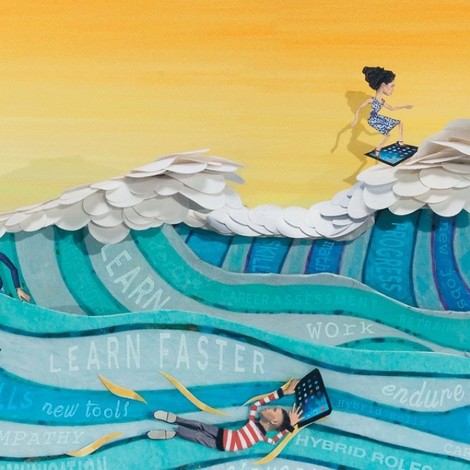Your podcast discovery platform
Curious minds select the most fascinating podcasts from around the world. Discover hand-piqd audio recommendations on your favorite topics.

piqer for: Health and Sanity Boom and bust Climate and Environment
Melissa Hutsell is an award-winning freelance journalist with a deep rooted passion for both community and international journalism. She was born and raised in Northern California, and has lived, studied, worked, and traveled in more 20 different countries. Melissa holds a Master's degree in Global Journalism from City University London, as well as degrees in Journalism and Globalization from Humboldt State University. Though she covers various topics as both a writer and editor, she specializes in business and cannabis journalism.
Riding The Episodic Wave: The 21st Century Career
Today’s job market looks nothing like our parents’, thanks to technology. But automation, and discussions around the future of work, have the global workforce feeling anxious.
As host Tanya Ott puts it, we can be afraid of robots, or realize they can make our jobs more rewarding. It’s not an either/or. This podcast by Deloitte Insights was originally released in 2017 but is even more relevant now than it was then. That’s because technology is constantly changing the way we live – and the way we work.
The "future of work" is a recently coined term that calls attention to the shifting needs of the marketplace. Since then we've heard about AI, automation, "the end of jobs and articles coming out on the fact that 47 percent of jobs are going away," explains Josh Bersin, HR expert.
Bersin believes individual careers are open to interpretation. While the traditional concept of a job might leave a large portion of the workforce behind, it provides opportunity for people to have multiple careers.
"We're all living a lot longer. [...]50 percent of Millennials will live into their hundreds. Whereas the average tenure of [an] S&P 500 company is [...]15 years now," Bersin explains. "The idea that you're going to have one career [...] your whole life is silly in this environment."
Individuals have to think about their careers as a series of waves, "where we're catching the wave again, and again, and again every five to 10 years with a new company, a new job, a new type of profession, a new kind of work," he adds. If we do it right, then, we will have better, more fulfilling careers.
Whether we stay in the same field or not, we'll need to learn new tools because technology is getting smarter and certain parts of our jobs will continue to disappear. It's not just up to the individual," Bersin explains. "Employers have to build an organization that allows and facilitates people to take new jobs, learn new things, try new careers, move around from place to place."
